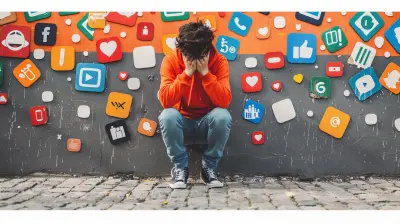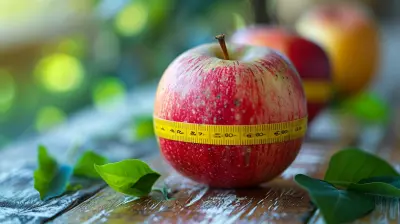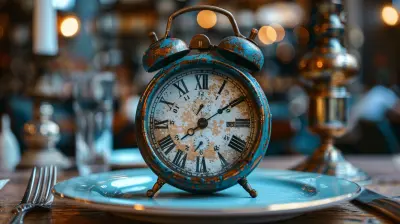How Alcohol Affects Your Body’s Ability to Burn Fat
14 September 2025
If you’re trying to lose weight or build a lean physique, you’ve probably thought about cutting back on alcohol. But do you really know how alcohol affects your body's ability to burn fat? It’s not just about the extra calories—alcohol impacts your metabolism in ways you might not expect.
In this article, we’ll dive deep into exactly what alcohol does to your body, how it slows fat burning, and what you can do to minimize its effects.
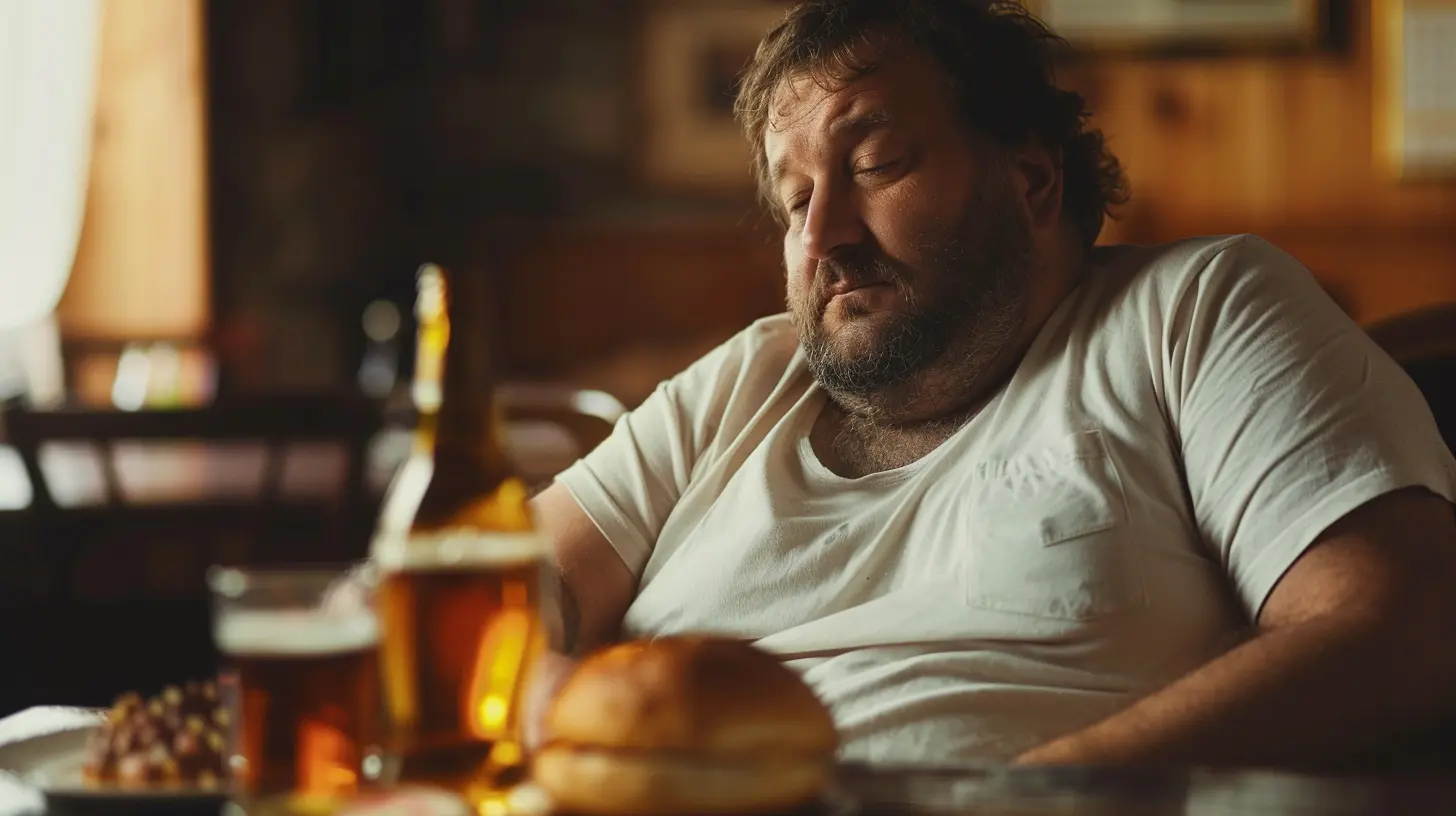
What Happens to Your Body When You Drink Alcohol?
When you consume alcohol, your body processes it differently than food. Unlike proteins, fats, and carbohydrates, alcohol isn't stored in the body—it’s treated as a toxin. Your liver prioritizes metabolizing alcohol over everything else, which means fat burning takes a backseat.Here’s a quick breakdown of what happens when alcohol enters your system:
1. Absorption – Alcohol is rapidly absorbed into your bloodstream, mostly through the stomach and small intestine.
2. Metabolism – Your liver starts breaking down alcohol into acetaldehyde (a toxic compound), which then converts into acetate.
3. Interruption of Fat Burning – While your liver is busy breaking down alcohol, it stops metabolizing fat, meaning fat loss is essentially paused.
So, every time you take a sip, your body's fat-burning process is put on hold. But that’s just the beginning of how alcohol sabotages your weight loss efforts.
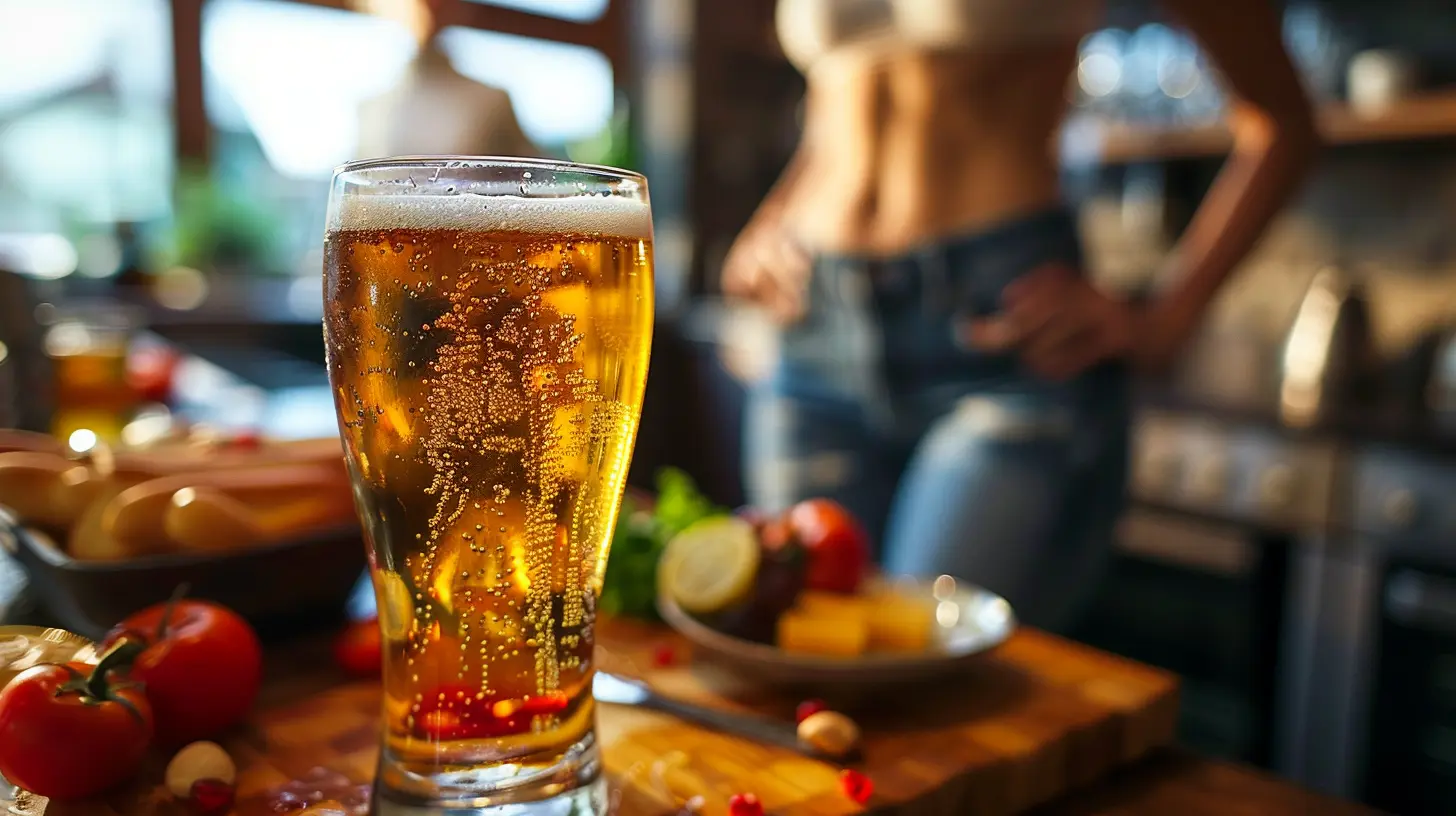
Alcohol Slows Down Fat Metabolism
Your body is a smart machine—it prioritizes what it considers urgent. Since alcohol is toxic, your liver jumps into action, trying to break it down as fast as possible.The problem? While this is happening, fat oxidation (your body's ability to break down and use fat for energy) drops significantly. Studies suggest that alcohol consumption can reduce fat burning by up to 73% for several hours! That means even if you're eating healthy and working out, alcohol puts a stop to fat loss every time you drink.
How Long Does Alcohol Impact Fat Burning?
The duration depends on how much you drink. A glass of wine or a single beer might stall fat burning for a few hours. But if you have multiple drinks, your metabolism could be impacted for 24-48 hours!That’s up to two days lost in your weight loss journey from just one night of drinking.
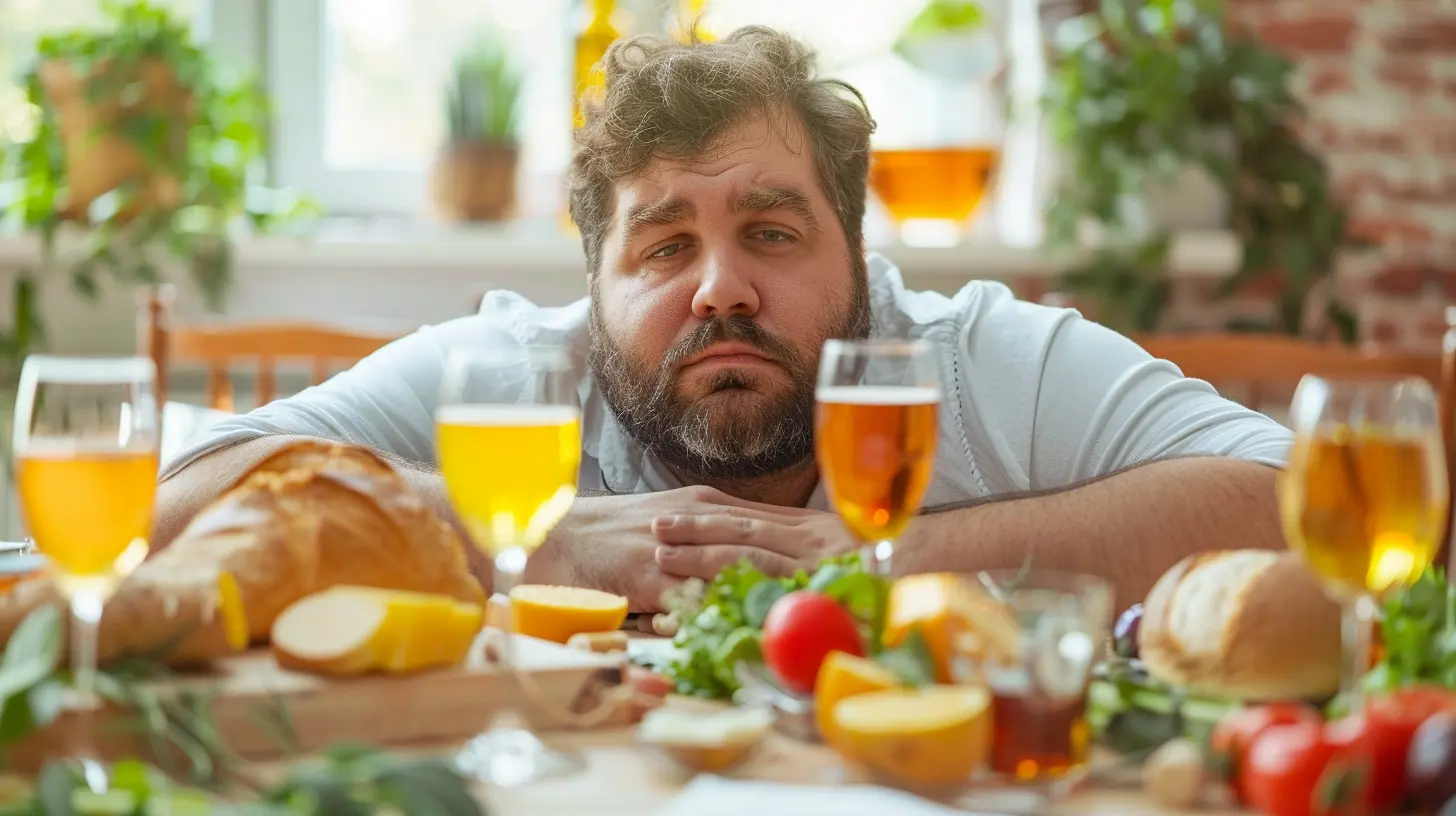
Alcohol Adds Empty Calories
One of the biggest issues with alcohol and weight loss? The empty calories. Alcohol provides zero nutritional value but still contributes to your daily caloric intake.Here’s a rough estimate of calories in some popular alcoholic drinks:
- Beer (12 oz) – 150–200 calories
- Wine (5 oz) – 120–150 calories
- Whiskey, Vodka, Tequila (1.5 oz) – 90–100 calories
- Cocktails – 200–500+ calories (depending on mixers)
Now, imagine having a few drinks on a night out. You could easily add 1,000+ calories without getting any essential nutrients. This can lead to weight gain, especially if you drink regularly.
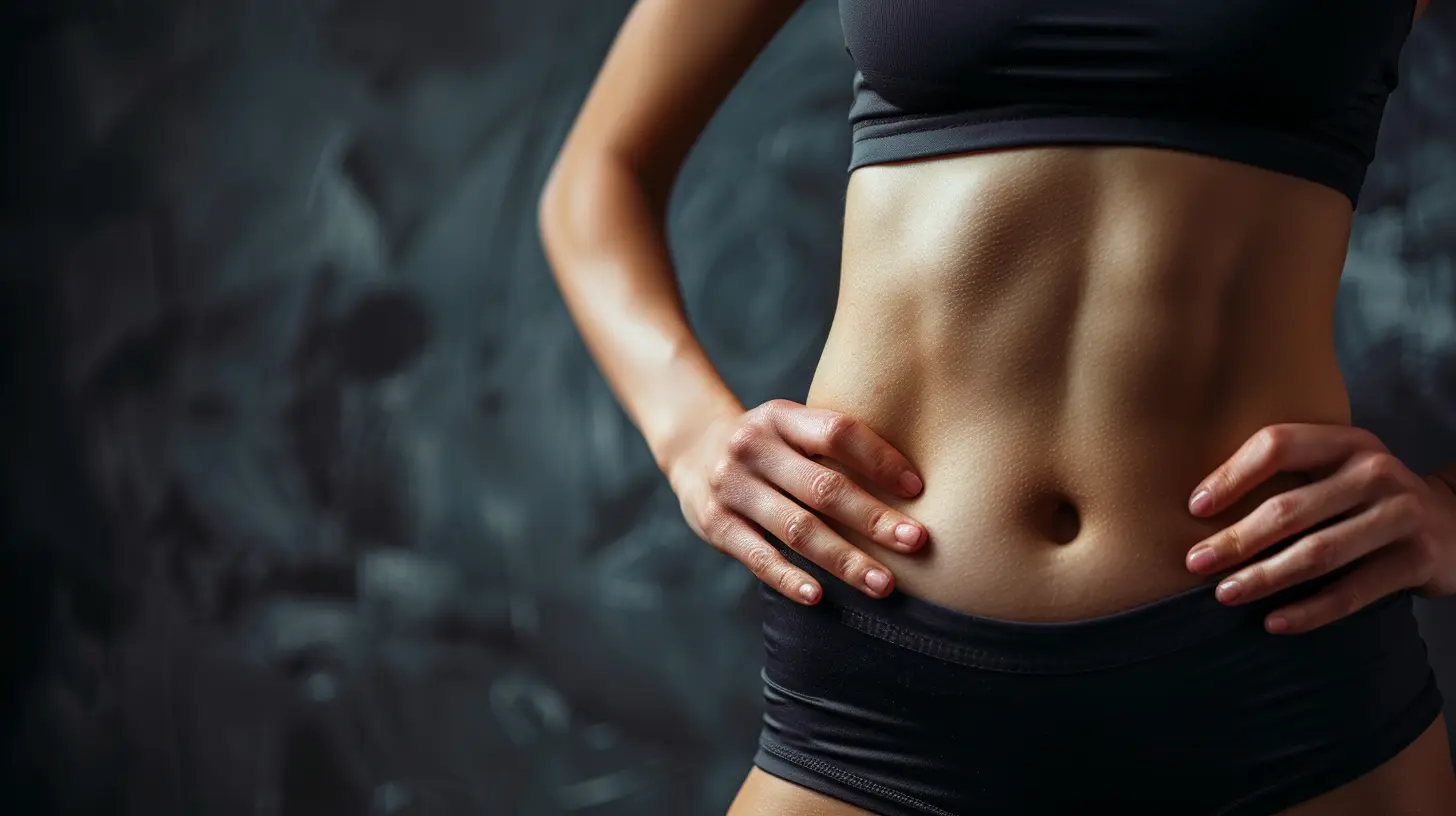
Alcohol Affects Hormones That Help Burn Fat
Your body relies on hormones like testosterone, growth hormone, and insulin to regulate metabolism and fat burning. Unfortunately, alcohol throws these important hormones out of balance:- Lowers Testosterone – Testosterone plays a huge role in muscle growth and fat metabolism. Alcohol has been shown to reduce testosterone levels, especially in men, making fat loss even harder.
- Increases Cortisol – Alcohol raises cortisol (the stress hormone), which is linked to increased fat storage, particularly in the belly area.
- Spikes Insulin – Drinking alcohol can cause insulin resistance, making it harder for your body to regulate blood sugar and burn fat efficiently.
So not only does alcohol pause fat burning, but it also makes your body more likely to store fat in the long run.
Alcohol Leads to Poor Food Choices
Let’s be honest—when you drink, you’re more likely to crave junk food. Alcohol lowers inhibitions, making it much harder to resist greasy burgers, fries, and late-night pizza.Several studies have shown that alcohol consumption increases appetite, leading people to eat significantly more calories than they normally would. And since your metabolism is already slowed down from alcohol, those extra calories are more likely to store as fat.
Can You Drink Alcohol Without Gaining Fat?
If you enjoy the occasional drink, does that mean your fat loss journey is doomed? Not necessarily. While alcohol does interfere with fat burning, you can still minimize the damage with a few smart strategies:1. Limit Your Drinking
The less you drink, the less impact it will have on your metabolism. Stick to one or two drinks occasionally rather than binge drinking.2. Choose Lower-Calorie Alcoholic Drinks
Swap sugar-filled cocktails for lighter options like:- Vodka soda with lime
- Whiskey on the rocks
- Dry wine (red or white)
3. Avoid Drinking on an Empty Stomach
Eating a protein-rich meal before drinking can slow down alcohol absorption and reduce cravings for junk food later.4. Hydrate Between Drinks
Alcohol dehydrates your body, which slows metabolism. Drinking water between alcoholic beverages helps your body process alcohol faster and reduces cravings.5. Drink Earlier in the Evening
If you must drink, try to have alcohol earlier in the evening so your body has time to metabolize it before bed. Drinking late at night increases fat storage since your metabolism slows down while you sleep.6. Get Back on Track the Next Day
If you’ve had a night of drinking, don’t beat yourself up. Just make sure to hydrate, eat clean, and get back into your normal diet and exercise routine.Final Thoughts
Alcohol and fat burning don’t mix well. Every time you drink, your body prioritizes metabolizing alcohol over burning fat. Add to that the empty calories, hormonal imbalances, and poor food choices that often come with drinking, and it's easy to see why alcohol can stall your weight loss progress.That doesn’t mean you have to give it up completely, but moderation is key. Be mindful of how much and what you're drinking, and make smart choices to minimize its impact on your fitness goals.
So, next time you reach for that drink, ask yourself—is it worth slowing down your fat loss progress?
all images in this post were generated using AI tools
Category:
Fat LossAuthor:

Laurie Barlow
Discussion
rate this article
1 comments
Zayden Cummings
Great insights on the impact of alcohol on fat metabolism! Remember, every small change counts towards a healthier lifestyle. By making mindful choices today, you’re investing in a brighter, fitter tomorrow. Keep pushing forward and stay committed to your goals—you’ve got this! Your body will thank you!
October 6, 2025 at 4:08 PM

Laurie Barlow
Thank you for the encouraging words! Every mindful choice truly does make a difference. Let's keep striving for a healthier future!
